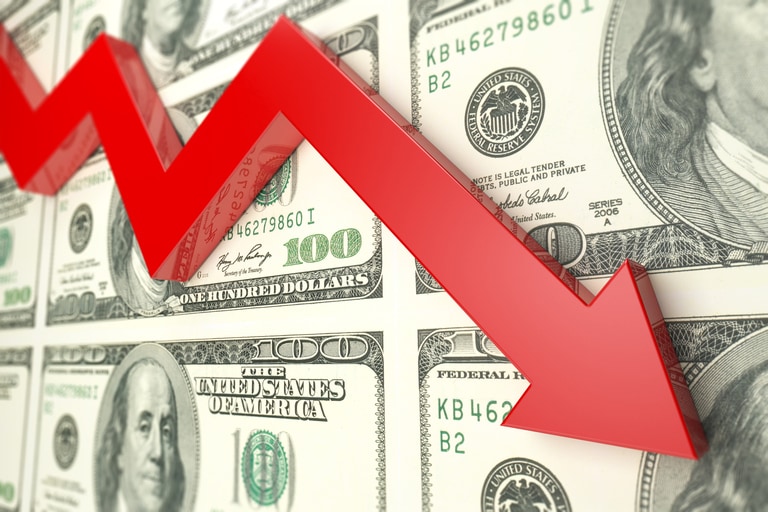Ahead of its Q4 earnings release on 25 August, former pandemic darling Peloton [PTON] has announced plans to cut jobs, raise product prices by 25-30% and close some stores.
“Job one is generating free cash flow by right-sizing our inventory commitments and converting many of our fixed costs to variable costs because that cost structure better aligns with the seasonal revenue of the business,” Peloton CEO Barry McCarthy wrote in a 12 August memo detailing the internet-connected fitness equipment company’s turnaround plan.
McCarthy, formerly CFO of Netflix [NFLX] and Spotify [SPOT], was appointed as Peloton CEO back in the third quarter to help the company become cash flow positive.
“These changes are essential if Peloton is ever going to become cash flow positive. Cash is oxygen. Oxygen is life. We simply must become self-sustaining on a cash flow basis,” McCarthy added.
The news has buoyed the Peloton share price, which has risen from $9.50 when markets opened on 1 August to $11.71 at the close on 19 August – an increase of 23%. The stock is up 42% from its 52-week low of $8.22 on 15 July. That said, the shares are down more than 67% since the start of the year.
Revenue fell in Q3
The company’s shares fell to $12.90 on 10 May after it reported disappointing third-quarter earnings. Lower demand for its bikes resulted in a first year-on-year contraction in sales since the company went public in 2019 Revenue in Q3 – covering the three months to the end of March – fell to $964.3m, down from $1.26bn a year earlier.
Net losses ballooned from $8.6m ($0.03 per share) a year ago to $757.1m ($2.27 per share). But Peloton did end the quarter with $879m in unrestricted cash, and the company said on the earnings call that it was confident it can achieve positive free cash flow by fiscal 2023.
“Turnarounds are hard work. It’s intellectually challenging, emotionally draining, physically exhausting, and all consuming. It’s a full-contact sport,” McCarthy wrote in the company’s shareholder letter.
Q4 call to shed light on 2023 outlook
Peloton is expecting to record revenue of between $675m and $700m for the fourth quarter, well below previous estimates of $821m. The consensus among 26 analysts polled by Yahoo Finance is for revenue to reach $722.18m, representing a decline of 22.9% year-on-year. The company expects losses to be between $115m and $120m. These figures are revised down from previously issued guidance.
While long-term investors dialling in to the Q4 earnings call will have their fingers crossed that Peloton doesn’t miss its guidance by a wide margin, they’re likely to pay particular attention to any comments regarding the company’s outlook.
McCarthy has an ambitious goal of building a community of 100 million members, up around fifteen-fold from 7 million at the end of Q3. The price of its bikes was slashed earlier this year, but McCarthy believes raising prices again is necessary to improve brand positioning.
Mixed views on cost-cutting
CMC Markets’ chief market analyst Michael Hewson isn’t convinced that the reversal is a good move, especially at a time when incomes are shrinking in real terms. “Peloton’s biggest problem was its inventory. It simply had too many products it couldn’t shift, with little sign of demand picking up. To address this, the company cut its prices and agreed a $750m long-term funding deal with its bankers,” he explained. “But earlier this month Peloton reversed these price cuts, raising its prices by 25% to 30%. This seems a strange decision given that its bikes and treadmills were already extremely expensive and, with inflation still rising, consumers are going to become even more price-sensitive.”
However, Piper Sandler analysts believe the restructuring is making Peloton stock’s prospects more attractive, according to a client note seen by Investing.com. They say user engagement will remain strong, but due to uncertainty around Peloton’s long-term total addressable market, they have reiterated a ‘neutral’ rating.
Meanwhile, JPMorgan analysts are confident that Peloton can achieve positive free cash flow towards the end of fiscal 2023, and they welcome the company’s restructuring plans. “All of these strategic changes effectively dismantle [Peloton’s] vertical integration – a key part of the bull thesis a few years ago – but they are necessary given recent growth rates, still-challenged cash flow, seasonality in the business, and macro uncertainty.”
Disclaimer: CMC Markets is an execution-only service provider. The material (whether or not it states any opinions) is for general information purposes only, and does not take into account your personal circumstances or objectives. Nothing in this material is (or should be considered to be) financial, investment or other advice on which reliance should be placed. No opinion given in the material constitutes a recommendation by CMC Markets or the author that any particular investment, security, transaction or investment strategy is suitable for any specific person. The material has not been prepared in accordance with legal requirements designed to promote the independence of investment research. Although we are not specifically prevented from dealing before providing this material, we do not seek to take advantage of the material prior to its dissemination.







